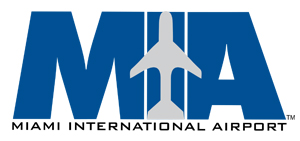 A proposed class action lawsuit brought on behalf of the passengers stranded during the 2011 fuel fire at Miami International Airport has been dismissed. The lead plaintiffs, Randell Baisden and Mario Perez, were seeking monetary damages incurred by unplanned travel changes and hotel stays after MIA shut down due to a large fire at defendant Allied Aviation’s fuel farm.
A proposed class action lawsuit brought on behalf of the passengers stranded during the 2011 fuel fire at Miami International Airport has been dismissed. The lead plaintiffs, Randell Baisden and Mario Perez, were seeking monetary damages incurred by unplanned travel changes and hotel stays after MIA shut down due to a large fire at defendant Allied Aviation’s fuel farm.
On March 23, 2011, a mechanical failure caused an explosion and large fire at Allied’s fuel farm at Miami International Airport (MIA). Allied is a commercial airline fuel service provider. Because of the fire, American Airlines cancelled over 100 flights from March 23 to 29, and thousands of passengers were left stranded.
Baisden and Perez were stranded in the incident and incurred unexpected hotel and transportation costs. They brought the Miami airport fuel fire class action lawsuit against Allied, alleging that Allied’s actions caused the fire, these actions were negligent, and that Allied should pay the additional costs they and the other stranded passengers incurred as a result of MIA’s closure due to the fire.
Allied Aviation motioned to dismiss the Miami airport fuel fire class action lawsuit in November 2013, claiming that it should not be held liable for travelers’ economic damages.
U.S. District Judge Ceclilia M. Altonaga dismissed the Allied Aviation class action lawsuit on Feb. 6, after finding that Allied did not owe a duty of care to the plaintiffs for the economic damage caused by their additional travel costs and delays. The judge noted “[a]t first glance, Plaintiffs could appear to satisfy the ‘foreseeable zone of risk’ definition … Because of a fire at the fuel farm, fuel service was interrupted and American Airlines had to cancel several flights … When flights are cancelled, passengers are among those foreseeably inconvenienced.”
However, the judge also stated “attaching a duty of care to protect purely economic interests is philosophically incongruous with the traditional scope of the law of negligence” and ‘[p]laintiffs relatively minor, purely economic injuries resulting from flight cancellations … while certainly ‘foreseeable,’ are outside the boundaries of recovery.”
The judge continued: “If Plaintiffs, having suffered no personal injuries or property damage, are permitted to recover expenses cause be flight cancellations resulting from interrupted fuel service, then every air, rail, auto and marine passenger prevented from getting to where he or she needs to go, at the time he or she wants to get there, as a result of the negligence of a service provider (caterers, mechanics, baggage operators, etc.) servicing the travel operator, will have a cause of action against those who caused the delay or travel cancellation. Federal courts neither desire nor are equipped to take on the virtually limitless amount of litigation that would ensue…”.
The judge disagreed with the plaintiff’s arguments that Allied owed them a special duty of care, like in other cases where courts have awarded damages to commercial fishermen who were harmed by the negligent discharge of pollutants into water where they made their livelihood and where commercial airlines have recovered damages from a neighboring railroad corporation after a tank car exploded. The judge noted “[p]laintiffs…are far too attenuated a class of plaintiffs for liability to attach for mere inconvenience and purely economic injuries.”
Randell Baisden and Mario Perez are represented by J. Thompson Thornton and Nanci R. Schanerman of Thornton Davis & Fein PA.
The Miami International Fuel Fire Class Action Lawsuit is Baisden, et al. v. Allied Aviation LLC, et al., Case No. 1:14-cv-23279, in the U.S. District Court for the Southern District of Florida.
ATTORNEY ADVERTISING
Top Class Actions is a Proud Member of the American Bar Association
LEGAL INFORMATION IS NOT LEGAL ADVICE
Top Class Actions Legal Statement
©2008 – 2025 Top Class Actions® LLC
Various Trademarks held by their respective owners
This website is not intended for viewing or usage by European Union citizens.














